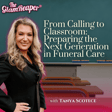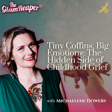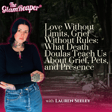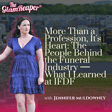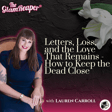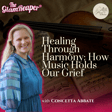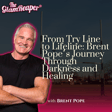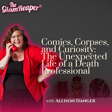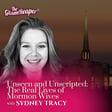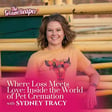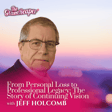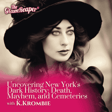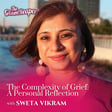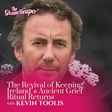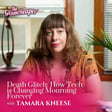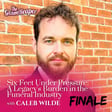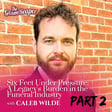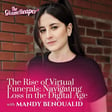
Six Feet Under Pressure: A Legacy's Burden in the Funeral Industry
In this part 1 episode of the Glam Reaper podcast, Jennifer Muldowney welcomes Caleb Wilde, a prominent funeral director, author and early adopter on social media and as a 'death-influencer’.
Caleb is a sixth-generation funeral director and the conversation delves into cultural sensitivity in America, funeral planning and he discusses his upbringing and familial influences that propelled him into this profession.
Through candid exchanges, Jennifer and Caleb offer listeners a glimpse into the complex tapestry of funeral directing, navigating personal convictions, familial legacies, and industry dynamics with empathy and insight.
Tune in to hear first hand from the man himself some confessions of a funeral director!
Key Topics:
-Funeral directing with a sixth-generation expert
-Reality in Growing up in a family funeral home
-Transparency and authenticity in the funeral industry
-Generational differences in funeral practices
-Navigating tradition and change in funeral world
Quotes From The Episode:
We're being changed and molded by the Internet and by globalization.
- Caleb Wilde
I sort of started this podcast because I wanted to have these really interesting conversations with people.
- Jennifer Muldowney
Timestamp:
[00:00] Podcast Intro
[03:08] Caleb discussed growing up in a family of funeral directors.
[08:18] Caleb started "Confessions of a Funeral Director" to find their own voice and self-expression amid the challenges of working in a family-run funeral business.
[12:24] Caleb shares how he transitioned from writing about theology to focusing on death and the funeral industry.
[17:26] Jennifer delves into her motivations for starting the podcast.
[21:38] Caleb reviewed the generational gap within the funeral industry.
[27:02] Outro
Connect with Caleb Wilde:
Facebook - /ConfessionsofaFuneralDirector
Website - book.calebwilde.com
Instagram - @confessions_of_a_funeral_dir
Twitter - @CalebWilde
Connect with Jennifer/The Glam Reaper on socials at:
Facebook Page - Memorials
https://www.facebook.com/MuldowneyMemorials/
Instagram - @muldowneymemorials
Email us - glamreaperpodcast@gmail.com
Listen to The Glam Reaper Podcast on Apple Podcasts:
https://podcasts.apple.com/us/podcast/the-glam-reaper-podcast/id1572382989?i=1000525524145
You Tube - https://www.youtube.com/channel/UCWe3sNoPny6UsMGYoYDeXfw
